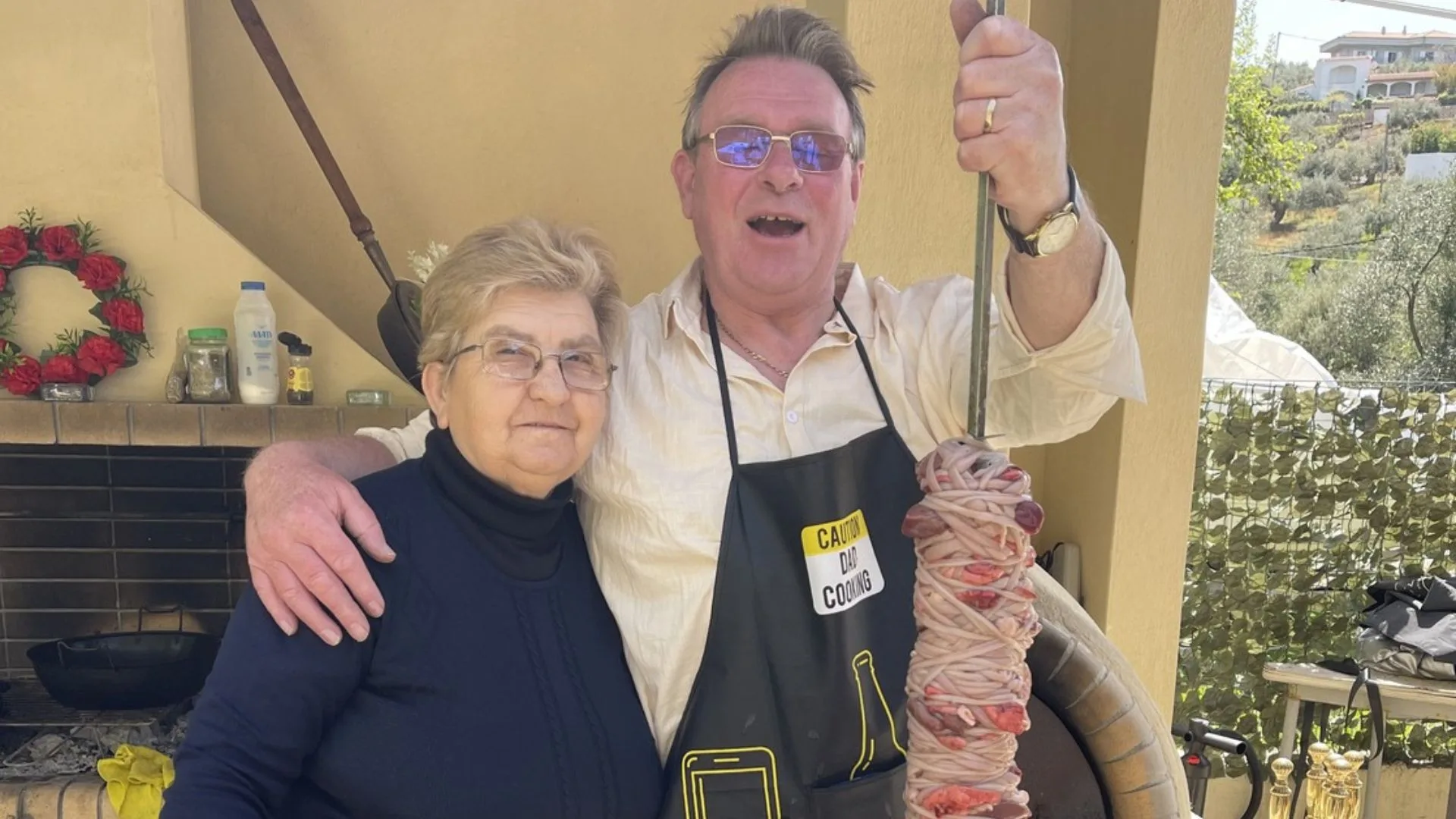Award-winning British author Peter Barber writes books about… Greece. So far, he has published five books about his second, or first, home! These include: ‘A Parthenon on our Roof’ (2022), ‘Musings from a Greek Village’ (2023), ‘A Parthenon in Pefki’ (2024), ‘Musings from a Pandemic (2024) and ‘The Parthenon Paradox’ (2025).
His five books to date foremost reflect his love for his Greek wife, Alexandra (Alex); a love which quickly evolved into a love for Greece. In his books, these themes reflect Peter’s deep appreciation and awe of Greece and her traditions using humour to narrate his experiences in getting to know Greek culture, part of which is Easter of course.

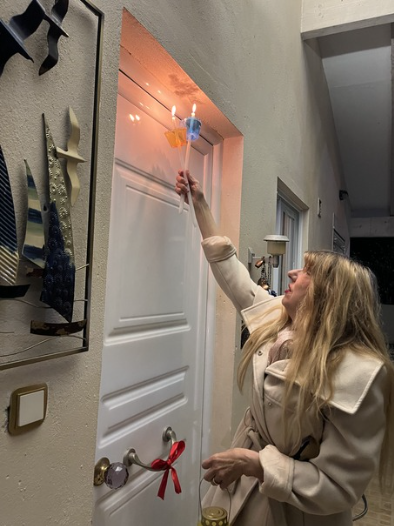
“Amazing … an incredible custom which I love,” is how Peter describes Greek Orthodox Easter, while adding “I didn’t realise the true meaning of Easter until I came to Greece.”
As for Easter in the United Kingdom, Peter says it generally involved “Easter eggs and hot cross buns,” and that it’s mainly a public holiday. So, Peter and Alex, who spend time in both the UK and Greece, prefer celebrating Easter in their “village,” which is Pefki, on the island of Northern Evia, Greece.
This has led him to conclude that “religion and culture are not separate in Greece.”
“Nobody stays home, and everyone, the entire village celebrate it,” he says.
As an example, Peter enthusiastically refers to following the Epitaphio (representation of Jesus’ tomb), with a band present and everyone holding candles. He goes on to talk about the Anastasi, “the famous Easter Resurrection service,” which is “magical.”
“As midnight approaches, we join the entire village at the church. At exactly midnight, the priest calls out “Christos Anesti!” (Christ is risen!), and the Holy Flame – flown in from Jerusalem, because Greece doesn’t do things by halves – is passed from person to person. Within moments, the entire church courtyard glows with candlelight. Church bells ring, fireworks explode overhead, and everyone embraces, exchanging wishes of health and happiness,” Peter explains.
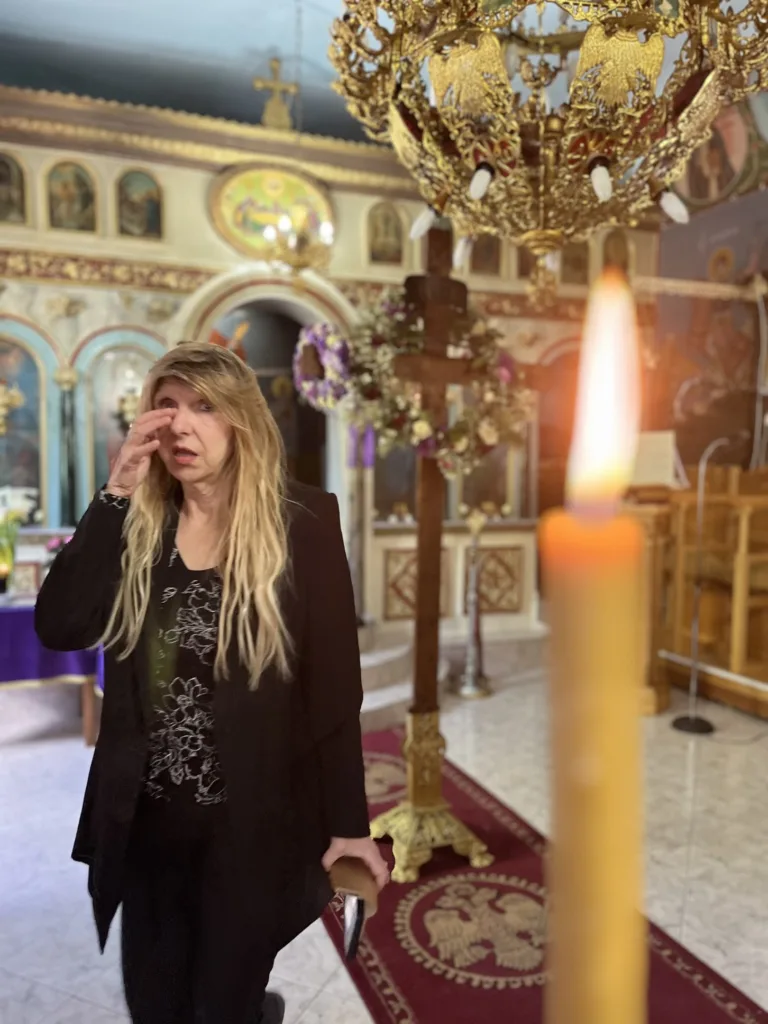
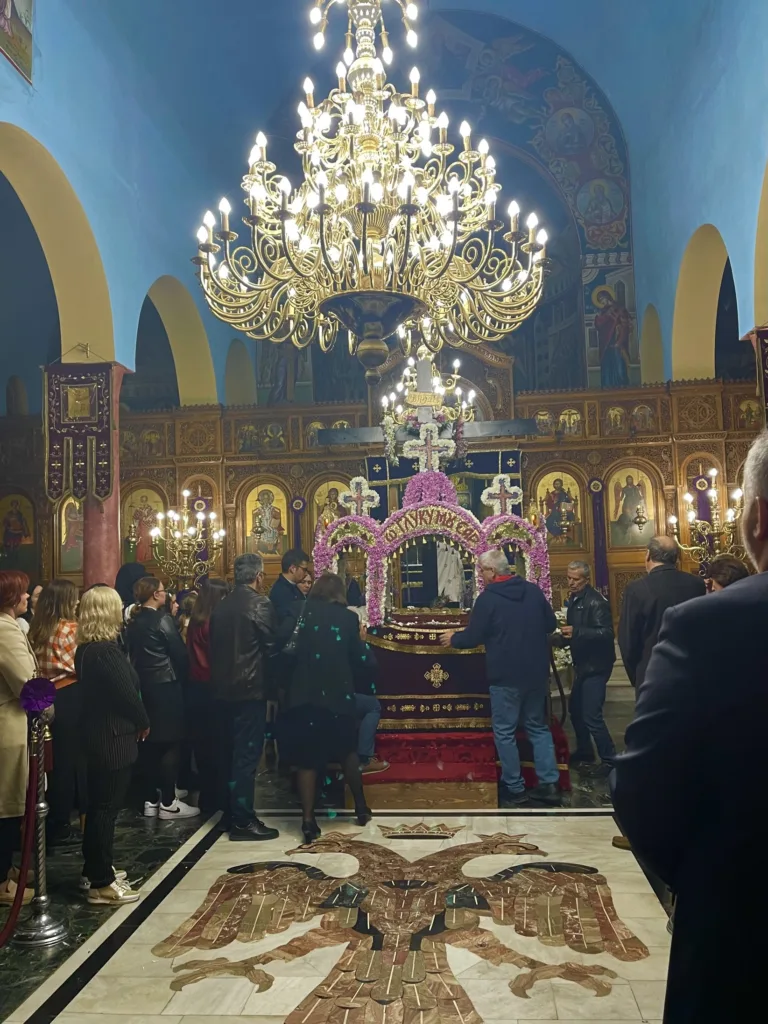
His first Easter in Greece many years ago was not all smooth sailing, or should I say, smooth skewering, though. This wasn’t due to his first exposure to the traditional offal soup eaten at Greek Orthodox Easter – mageritsa – regardless of his description of swallowing it bravely “without turning too green!”
With a shy smile yet characteristic wit, Peter refers to his first Greek Orthodox Easter as an “Easter experiment.”

“When Alex first told me about Greek Orthodox Easter, I imagined a quiet, spiritual affair – perhaps a candlelit church service followed by a dignified meal. What I got was an explosion of fire, feasting, and enough chaos to make a British Christmas look like a library reading,” he says.
But things got really hairy, or hairless, when something went horribly wrong… “the lamb debacle.”
Peter, newly wed then to Alex, felt it was “time for me to prove my worth as a Greek son-in-law.” He headed to the meat market where he was glad the lambs on sale were skinned, otherwise, “if I’d had to do the deed myself, we’d have ended up eating sausages!”
He then narrates his hilarious experience, which begins with him securing the lamb on the spit and lighting the fire, whereby… “everything was going perfectly – until the lamb began to cook… and as it shrank, it became floppy. With each rotation, the middle sagged, bounced, and eventually thumped down onto the fire. No problem, I thought. A little wire around the middle should hold it in place. Big mistake. An hour later, with a sickening crack, the lamb snapped in half. The wire had cut through it, and both halves tumbled into the flames.”
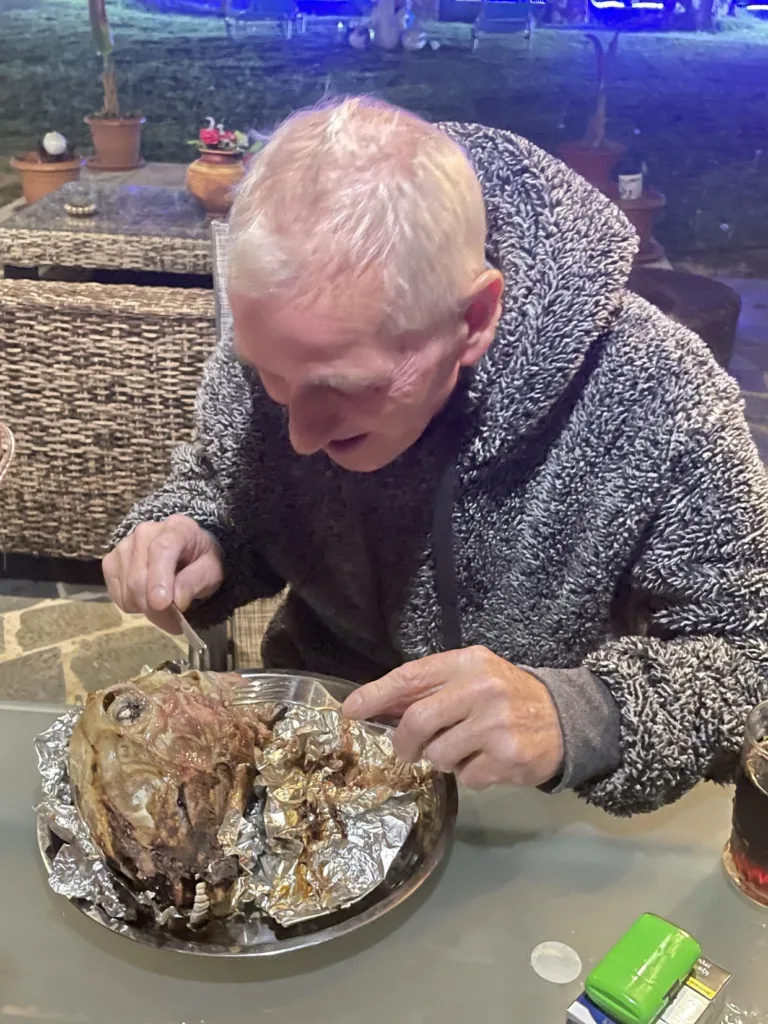
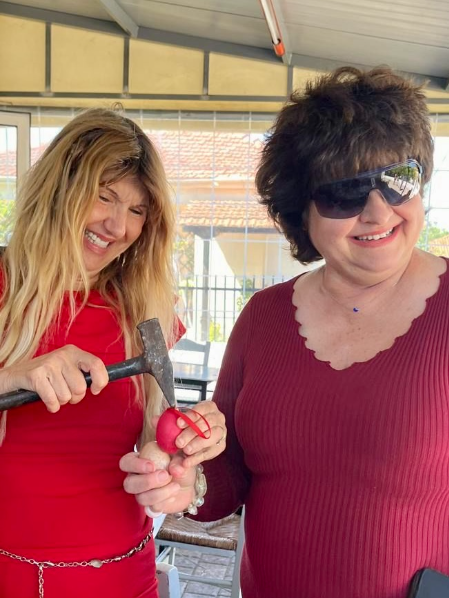
He continues: “I tried to rescue the now-burning remains, suffering mild third-degree burns in the process. As I stared at the charred mess in front of me, I realised I had just ruined the most important meal of the year. Embarrassed, I went downstairs to break the news to Alex and her mother. But instead of outrage, they were grinning.”
He says they reassuringly told him that this happens and that it wasn’t a problem as they could salvage the lamb and cook it in the oven, which they did.
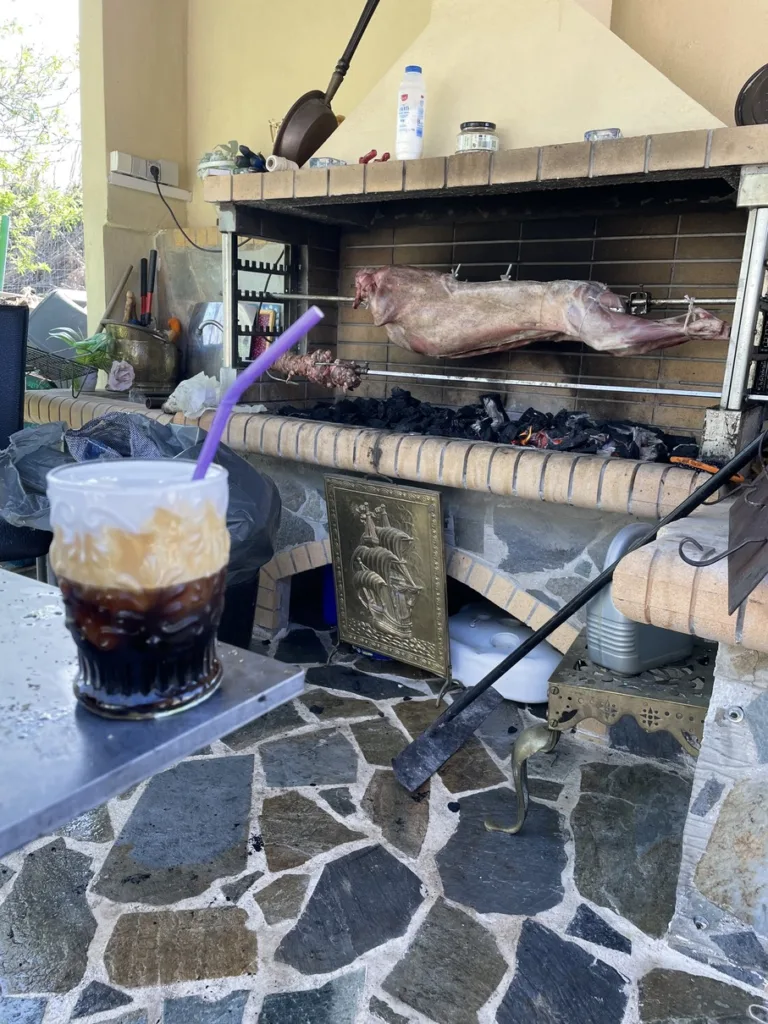

“Apparently, I had just unknowingly passed the ultimate Greek Orthodox Easter initiation test… I had experienced something far more valuable – what Greek Orthodox Easter is really about,” Peter concludes.
“Family, laughter, resilience… and, of course, the unwavering knowledge that no matter how bad things seem, there’s always a way to make them work. Even if it involves a half-burned lamb and a lot of improvisation.”
